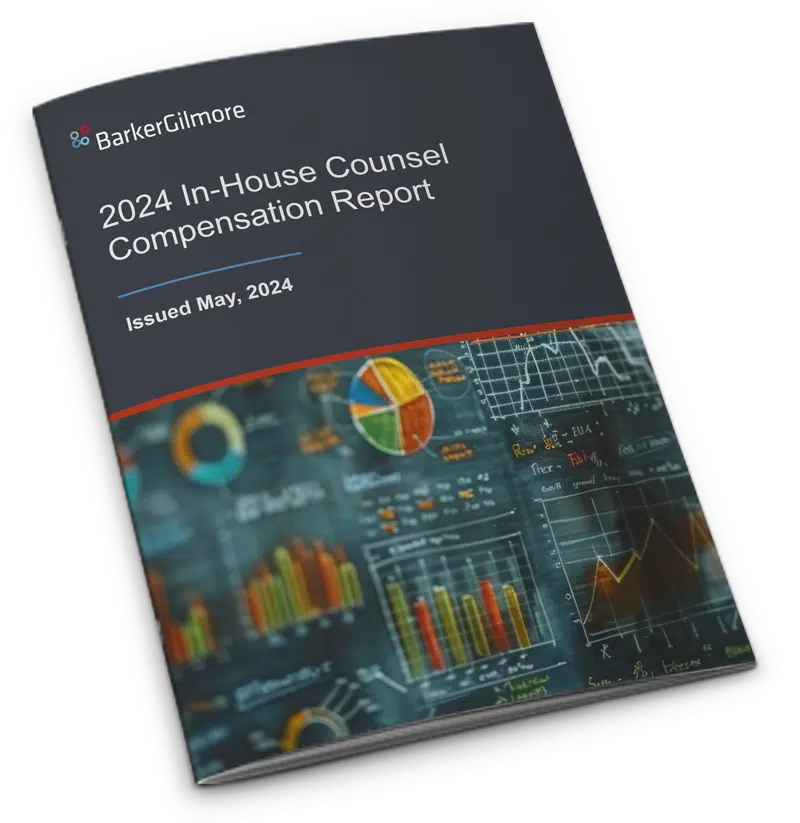 Haydee Ortiz Olinger, who most recently served McDonald’s Corporation as its Global Chief Compliance Officer, adds her expertise to the strategic counsel, leadership development, succession planning, and other services BarkerGilmore advisors provide to legal and compliance departments, CEOs, and boards across the country. Haydee is widely recognized for transforming business operations by successfully creating and implementing best in class compliance and ethics programs that elevate business standards, ensure performance uniformity, and reduce vulnerabilities.
Haydee Ortiz Olinger, who most recently served McDonald’s Corporation as its Global Chief Compliance Officer, adds her expertise to the strategic counsel, leadership development, succession planning, and other services BarkerGilmore advisors provide to legal and compliance departments, CEOs, and boards across the country. Haydee is widely recognized for transforming business operations by successfully creating and implementing best in class compliance and ethics programs that elevate business standards, ensure performance uniformity, and reduce vulnerabilities.
As the strategic role of corporate compliance departments continues to intensify, what are the hot button issues they should focus on?
One of the biggest issues is the need to comply with the EU General Data Protection Regulation (GDPR), which represents the biggest change in the past 20 years in the regulation of how companies store and handle personal data of EU citizens. It is enforceable beginning this May, and companies with an international presence need to be prepared. Also at the top of the list is the need for CCOs to do more with less and manage their departments with limited budgets. And as companies keep an eye on the bottom line by outsourcing more non-core functions, and regulators focus on this outsourcing activity, third party risks are escalating. As a result, Boards are now considering third party risks to be a major strategic risk for their companies. Finally, as more and more CCOs sit at the boardroom table, compliance departments need to be aware of the commitments of the board and executive management to assist in setting and enforcing the “tone” at the top.
What is typically the biggest area for development of a CCO?
Learning to be an influential leader is most vital. It is important to be self-aware and forge partnerships within an organization; this is critical to integrating compliance into the business. Dictating compliance from above only alienates markets and management and makes compliance a distraction. The more a CCO is able to influence leaders and employees to incorporate compliance and ethics into day-to-day business practices, the more effective and successful the program will be.
What do you think differentiates top CCOs from the others?
Top CCOs know how to develop the gravitas necessary to do the job while maintaining the respect of senior management, other executives, and employees. It’s difficult to tell a senior executive they need to make a decision that they may not want to make; CCOs who have senior management’s ear and a reputation for being thoughtful and thorough in making suggestions and providing advice, will be the most successful.
What are some of the challenges you faced in your executive role and how did you resolve them?
Balancing the need to ensure compliance throughout the organization – serving as “gatekeeper” was part of my role – while advancing business objectives and maintaining the respect of both executives and employees was a huge challenge. I resolved this by engaging everyone in the compliance process and making sure there were no surprises about expectations. In addition, I traveled to our offices around the world, meeting with employees and management, so they could put a face to the name and feel more comfortable asking questions, or consulting with me about ethical concerns or the compliance and ethics program, generally.
In what ways did you make the biggest impact on the company you served?
Making compliance and ethics top of mind throughout the organization certainly created the biggest impact. In all of our markets around the world, employees were aware of the company code of conduct and the organization’s expectations. I also mentored young women and minorities in the organization; it was important to me to be an active role model. By “active,” I mean that I facilitated career development classes on a volunteer basis because I felt it was important to help employees grow.
What are the best “words to live by” that you would want every CCO to know?
“Build strong relationships” and “communicate;” a CCO who sits in the corporate office is not doing an effective job. Getting to know the individuals outside of the corporate office helps them realize the corporation takes compliance and ethics seriously. Building relationships throughout the company and across all markets further allows the CCO to explain the reasons behind the policies and procedures that are in place, and allows employees and management the opportunity to provide feedback about the program.
What are you passionate about?
I am passionate about ensuring companies have the appropriate “tone at the top.” It is not enough for senior management to say they support and believe in compliance and ethics in their organizations. They have to live it through their behaviors and they have to consistently mention these expectations in their corporate communications and presentations. The recent issues that have arisen at Uber, Wells Fargo, American Apparel, NBC, etc. have all been a result of management’s failing to either model ethical behavior, or stand up for what is right. Employees who commit illegal or unethical infractions should be dealt with immediately, so that everyone throughout the organization will know that these acts will not be tolerated. When management picks and chooses who they discipline based upon the individual’s perceived value to the organization, they are sending the wrong message.
What do you wish you knew in your first in-house role?
I wish I had initially known how to maneuver through the internal political landscape. Understanding the culture and the “unwritten” rules that exist in every organization is important to success:
- Who is aligned with whom?
- Who has the silent power?
- Who is being groomed for future promotions, etc.?
- What projects have the highest priority and attention of senior management?
Learning how to listen, observe, and communicate will help in navigating through this process.
In your role as a BarkerGilmore advisor, where do you see yourself adding the biggest value to CCOs?
By helping CCOs see their compliance program through a new set of eyes, and reviewing the total program, infrastructure, design, policies, and procedures, I can help assess where improvements can be made and identify what may be missing. After more than 20 years of driving forward the compliance and ethics program at McDonald’s Corporation, I am comfortable translating that experience to coach and mentor compliance and ethics officers and their teams to achieve their desired development outcomes. In addition, since I know how important it is to build the goals and objectives of the department around a strategic plan, I can assist in designing an effective three-year compliance strategic plan. Also, I can provide depth in the development of a bullet-proof Foreign Corrupt Practices Act program. In instances where full-time resources are limited, I can fill-in as a member of the compliance team, or even work as an interim compliance and ethics officer.
Connect with a legal recruiting advisor
* indicates required fields






